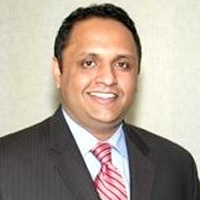 Fairview Village Criminal Lawyers, Pennsylvania
Fairview Village Criminal Lawyers, Pennsylvania
Sponsored Law Firm
-
 x
x

Click For More Info:
-
The McGarrigle Law Firm
1500 Walnut Street, 22nd Floor Philadelphia, PA 19102» view mapWhite Collar Crime, Criminal Appeals, DUI&DWI Trial Experience & Zealous Advocacy
The Firm’s devoted attention to your individual concerns, our vast trial experience in all types of criminal matters, and our skillful advocacy will ensure that your rights are protected.
800-934-5330
Sponsored Lawyers
1-10 of 14 matches
Accident & Injury, Criminal, Divorce & Family Law, Lawsuit & Dispute, Estate
Leno P. Thomas, is an attorney with an uncommon breadth of skills and experience that go well beyond his practice of law. Mr. Thomas was born in Ranni, Kerala, India, and speaks and understands Malayalam and English. Mr. Thomas graduated from Valley Forge Military Academy in 1992 then received his Bachelor of Science Degree from the University of Pittsburgh in 1996. Mr. Thomas graduated with honors and received his Juris Doctor Cum Laude degree from Michigan State University in 2002. Mr. Thomas' practice is focused on personal injury cases, including medical malpractice, product liability, premises liability, auto accidents, and wrongful death. Mr. Thomas also handles a significant amount of criminal and family law cases. Mr. Thomas has tried and arbitrated hundreds of cases to successful verdicts and awards. Mr. Thomas has also negotiated and settled countless claims procuring millions of dollars in settlements for his clients. Mr. Thomas is licensed to practice law in the commonwealth of Pennsylvania as well as Michigan. Mr. Thomas is an active member of the American Association for Justice, the Pennsylvania Association for Justice and the Philadelphia Trial Lawyers Association. Mr. Thomas is also a member of Michigan Bar Association and the Pennsylvania Bar Association. When someone has an accident or unfortunate occurrence, Mr. Thomas and his staff are prepared to investigate every aspect of the situation in order to discover not only what happened, but why. Using cutting edge technology, Mr. Thomas evaluates every option until he makes a determination as to who was responsible. Mr. Thomas is an aggressive litigator, as well as a skilled negotiator. Mr. Thomas is well known for employing innovative strategies and ground breaking courtroom techniques. He regularly consults with leading experts so that he can provide his clients with the most effective and efficient representation. Please allow Mr. Thomas and his staff to evaluate your case and get you the proper compensation that you deserve. As always, the initial consultation is free and there is never a fee unless Mr. Thomas recovers money for you.
(more)Accident & Injury, Criminal, Divorce & Family Law, DUI-DWI
Lee Ciccarelli is the founder and motivating force behind Ciccarelli Law Offices, a law firm with a team approach aimed at engaging our clients while providing them the benefit of our combined experience and efforts to handle the most significant and complicated issues and problems facing our clients in both civil litigation, criminal defense, and family and marital law. Our firm represents clients throughout the Philadelphia metropolitan area and throughout the Commonwealth of Pennsylvania in a range of interesting and relevant cases. We are based in the heart of Chester County at 304 North High Street, West Chester PA 19380 on Professional Row, and can be reached at (610) 692-8700.
(more)Divorce & Family Law, Criminal, DUI-DWI, Felony, Child Custody




 Daniel McGarrigle Philadelphia, PA
Daniel McGarrigle Philadelphia, PA TestimonialsRecent Reviews
TestimonialsRecent Reviews Contact UsCall or Email
Contact UsCall or Email



